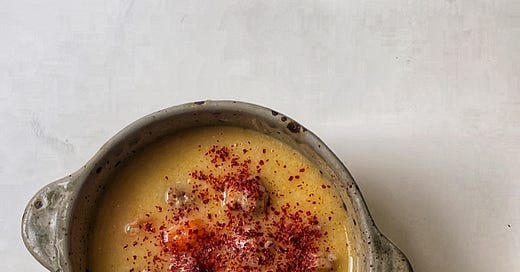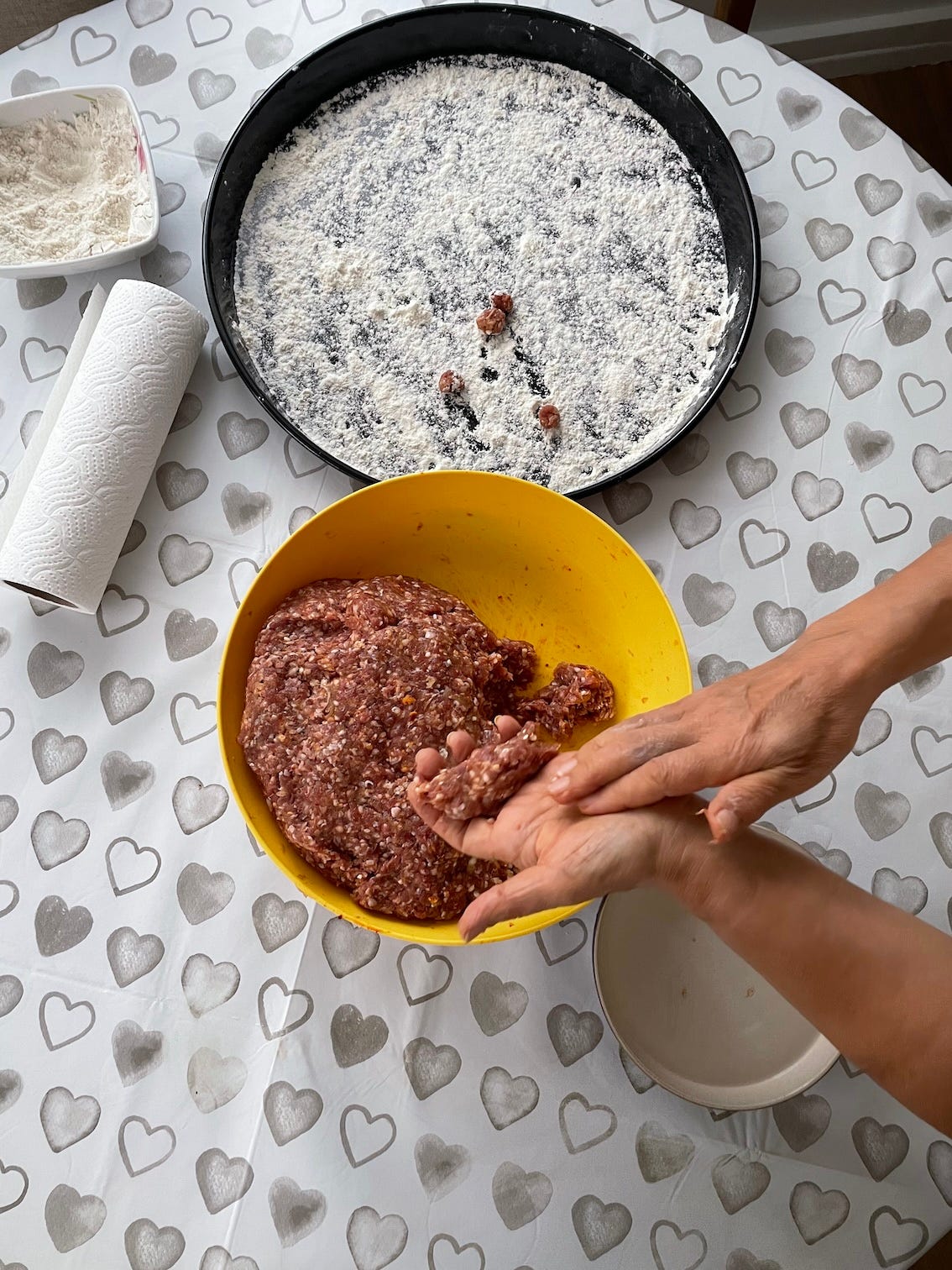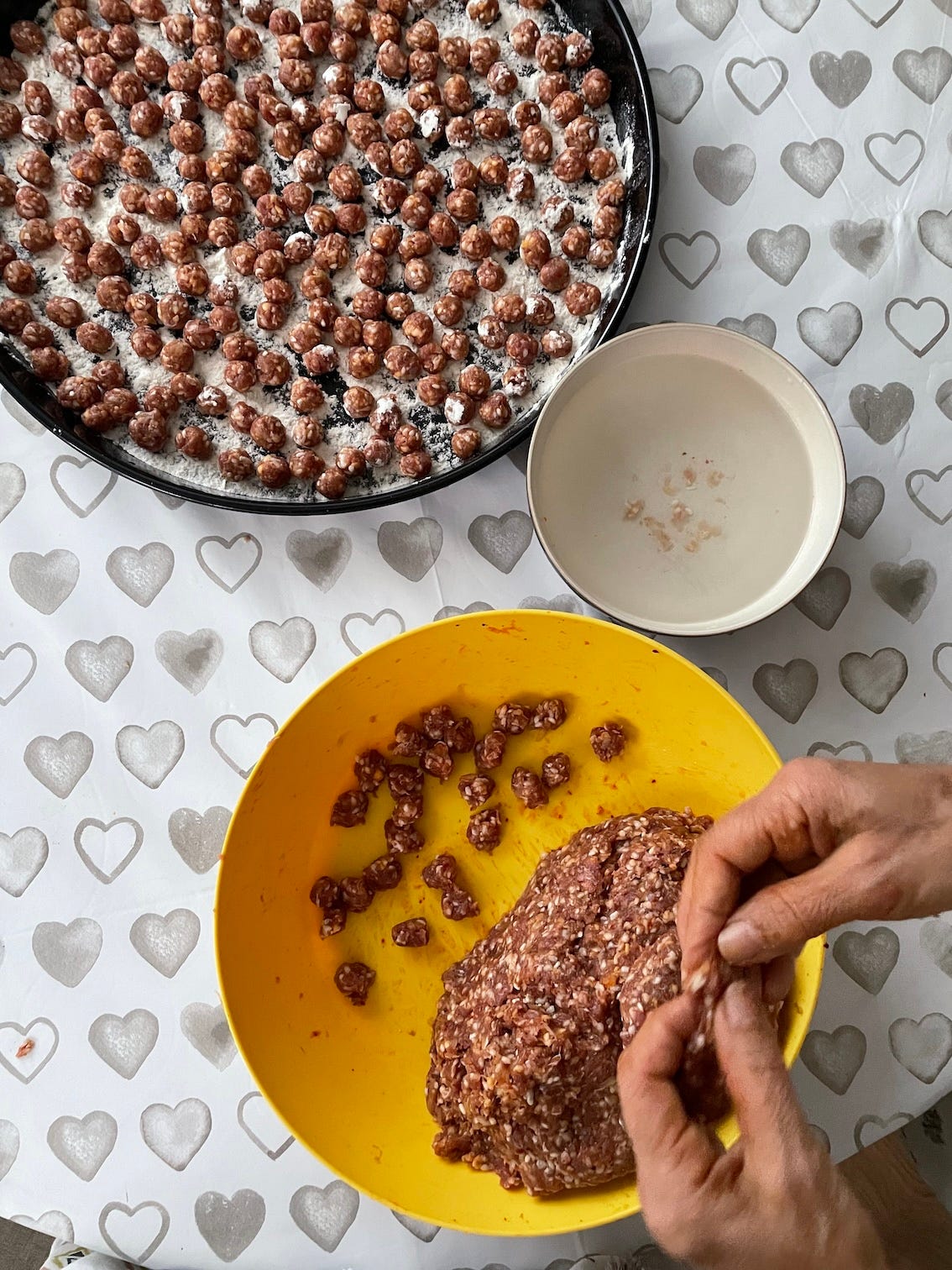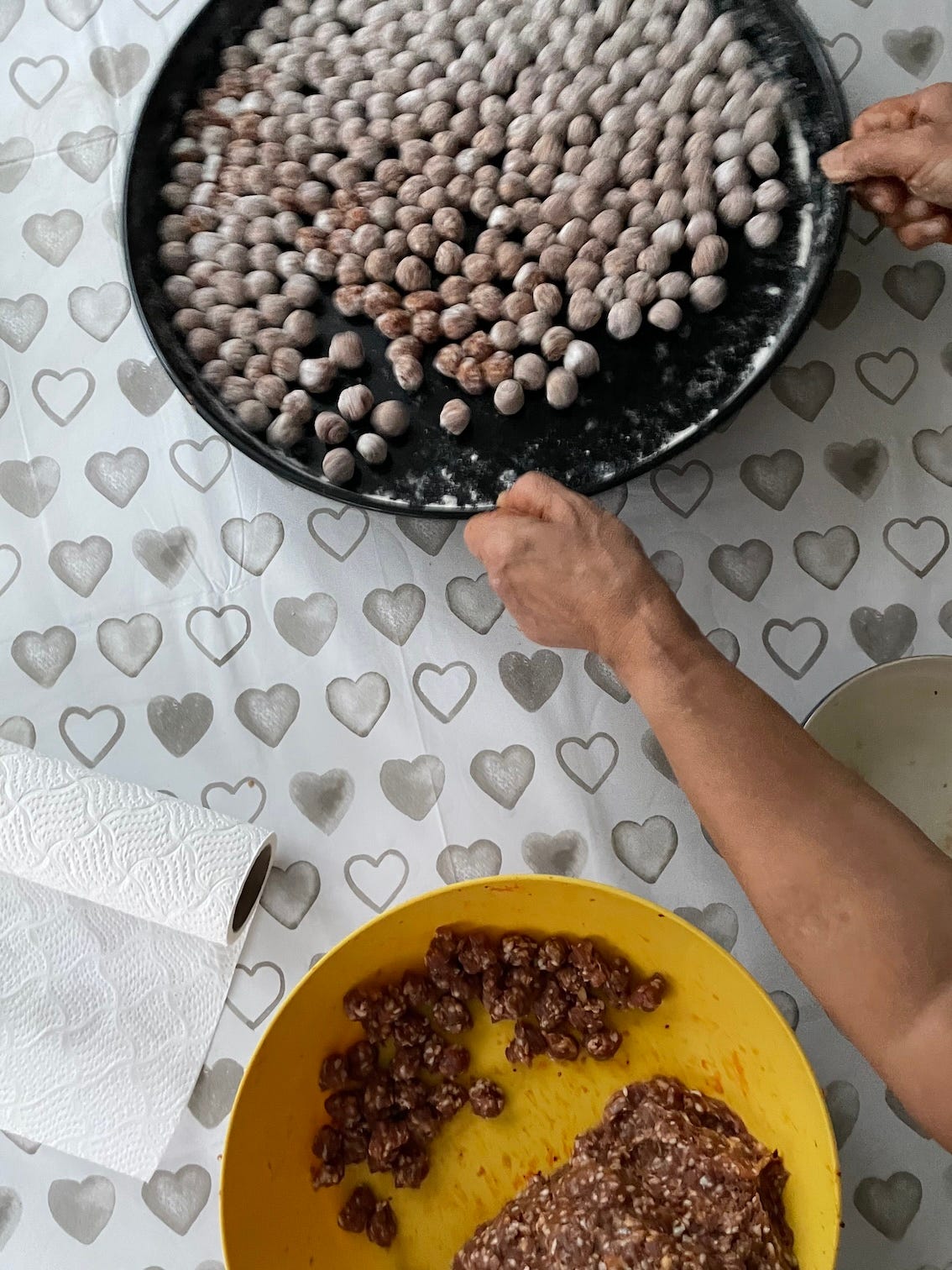Civilised Soup, Uncivilised People
Melek Erdal's terbiyeli soup with lamb and rice meatballs. Text and photography by Melek Erdal.
A Vittles subscription costs £5/month or £45/year. If you’ve been enjoying the writing then please consider subscribing to keep it running — it will give you access to the whole Vittles back catalogue — including Vittles Restaurants, Vittles Columns, and Seasons 1-6 of our themed essays.
Welcome to Vittles Recipes! In this new weekly slot, our roster of six rotating columnists will share their recipes and wisdom with you. This week’s columnist is Melek Erdal. You can read our archive of cookery writing here.
Civilised Soup, Uncivilised People
A recipe for terbiyeli soup with lamb and rice meatballs. Text and photography by Melek Erdal.
The Turkish word ‘terbiye’ is a noun meaning ‘decency’ and a verb meaning ‘to tame’ (an animal), ‘to raise or educate a person’, or ‘to tenderise meat’. It is also a marinade, a technique to thicken soup, and an old Ottoman women’s name. The antonym, ‘terbiyesiz’, is an insult meaning ‘crude’. A word with so many meanings attached to it surely is not to be trusted – with so many potholes and opportunities for misunderstanding. It seems to come from a time where words could mean anything, as if people were trying them out to see where they would work.
My dad would do the same when he learned a new English word; he would use it as much as he could, and everywhere he could, to see where it worked and so that it would embed in his memory. He learned the words ‘absolutely’ and ‘definitely’ on the same day and would use them together, making him sound so sure and enthusiastic about things that really didn’t require such energy.
‘Dad, would you like a cup of tea?’
‘Absolutely definitely I would please.’
‘Dad, who’s the actor in Crimson Tide?’
‘Absolutely definitely Denzel Washington.’
I am absolutely definitely sure though that my favourite soup is terbiyeli ekşili köfte çorbası, which is filled with marble-sized lamb and rice meatballs. Here, the word ‘terbiye’ refers to the mixture of egg and lemon juice that is used to emulsify, thicken, and flavour the soup. The Greeks call this ‘avgolemono’, and I wonder if there are also old ladies walking around with this as their name.
My mother learned to cook terbiyeli ekşili köfte çorbası when she was a young woman working as a cleaner for Serpil Tüfekçioğlu, the wife of the general manager of the Sheraton Hotel in Istanbul. Serpil taught Mama how to prepare this soup for her young son. On the days when Mama would sneak me into work, I would sit quietly in the kitchen with her, careful not to disrupt the ebb and flow of the household. But when she made the soup, Mama would take a few meatballs out so that we could check if it was cooked together, ready for the terbiye to be added in. Thus, I would get to taste the untamed version of the soup – before it crossed over to the realm of ‘civilised’ on the other side of the kitchen door.
Since then, I have loved this dish for its depth of flavour, the comfort provided by its filling textures, and the balance between the fat of the meatballs and the acidity of the lemon–egg mixture in the silky, custard-like broth. More recently, too, making and eating it is the only way I feel able to communicate and connect with my parents without invoking a past trauma or a present problem to resolve.
There is a rhythm to how the soup starts to unfold. It brings a welcome slower pace to the otherwise-chaotic nature of my interactions with the family. It begins with a phonecall – that I don’t answer. Then a text arrives from Mama to say, ‘I’m making your soup, come help me’. I immediately call back and tell her that I’m coming and not to start without me, and then I rush over. She’s already started. I’m pissed, but it’s fine – apparently, she’s only washed the rice and defrosted the lamb mince. I set the table for meatball making while she kneads the mixture. She asks me to pass the salt and pul biber because her hands are now laced with lamb fat. I pass her everything she needs as she kneads.
We head over to the meatball station – aka the dining table by the window in the living room. She divides the balls and I roll them. She tells me the story of how she learned to make the soup, even though she’s told me a thousand times before. And I don’t mind. I like it. We finish the meatballs and head back to the kitchen, and mum narrates the next steps, even though I know them all. I realise now she narrates them for herself because it gives her pace, and because her memory isn’t the same. Maybe she also does it for comfort – her voice narrating the soup is the emulsifier between us.
Dad calls to ask what’s cooking. We tell him it’s soup. He says he’ll buy bread en route. We don’t wait for him for our first bowl. It’s just me and Mum, a hand-crushed onion, and some broken bread. How would the old manager of the Sheraton Hotel eat this, I wonder? Probably not with raw onion. Then we add some extra pul biber and lemon. We are silent. There’s just the sound of the hot soup meeting our mouths, then a bit of the raw onion and bread, followed by more soup to wash it down. Our silence is broken only by Dad’s arrival, loud and uncivilised, with a story to tell.
Recipe below








